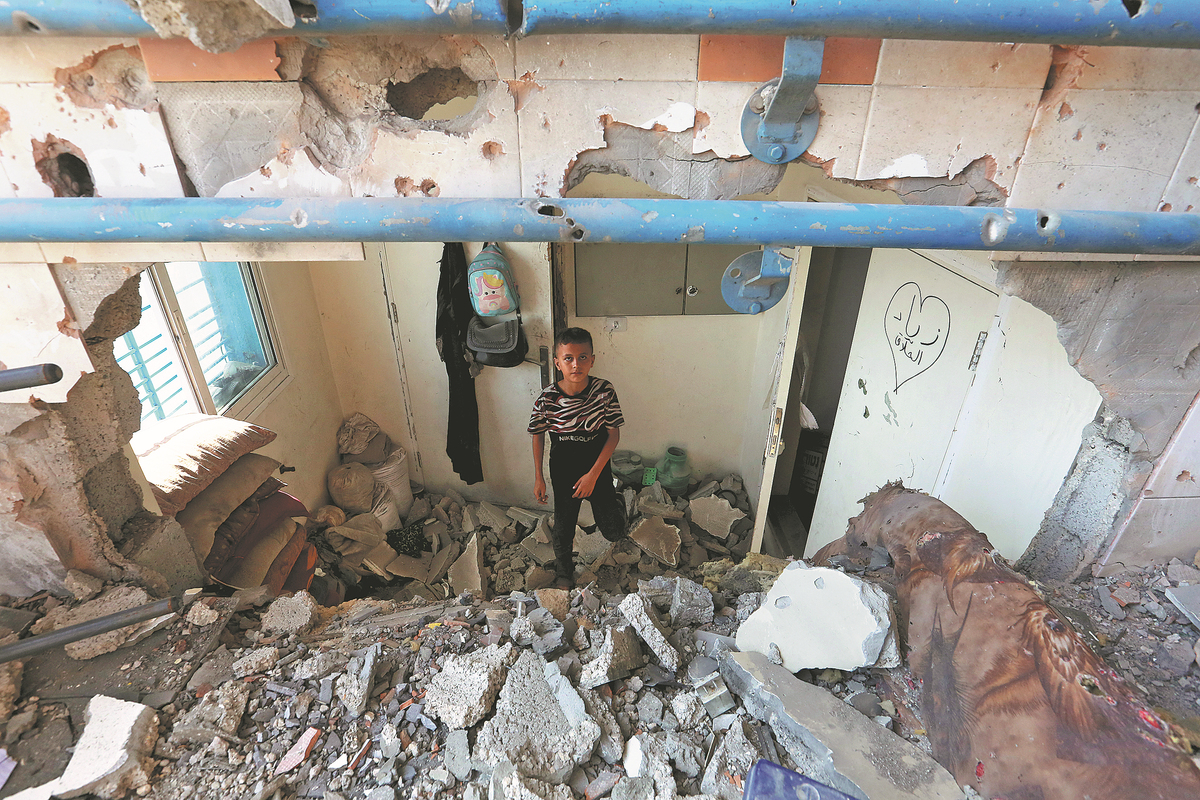
Palestinian militant group Hamas has dismissed reports that it has withdrawn from Gaza ceasefire negotiations amid continued Israeli attacks, which killed about 90 civilians in strikes over the weekend, with the excuse it is targeting Hamas military commanders.
Meanwhile, families of Israeli hostages have slammed Prime Minister Benjamin Netanyahu for putting the progress of truce talks at risk, following the massive strike that was directed at the Al-Mawasi area near Khan Younis in southern Gaza on Saturday.
Israel and Hamas have been trying to reach a cease-fire deal for months through mediators Egypt, Qatar and the United States. The parties reconvened in Doha and Cairo last week.
Izzat al-Rishq, a member of Hamas’ political bureau, said in a statement on Sunday that reports of a decision to stop negotiations in response to the Al-Mawasi massacre were “baseless”, accusing the Netanyahu government of “trying to obstruct reaching an agreement to stop the aggression on Gaza”.
The Times of Israel reported that thousands of people rallied outside Netanyahu’s office in Jerusalem on Saturday, calling for a hostage deal. Einav Zangauker, mother of 24-year-old hostage Matan Zangauker, accused Netanyahu of “time after time, trying to separate me from Matan”.
Netanyahu’s office released a statement on Saturday reiterating the prime minister’s conditions before halting the fighting with Hamas.
“Victory will be achieved when we eliminate the military and governing capabilities of Hamas, bring all of our hostages back home, ensure that Gaza will never again constitute a threat to Israel, and return our residents in the south and the north securely to their homes,” Netanyahu said.
He appealed to the families of the hostages for their patience and understanding, while acknowledging their “suffering”.
The Israel Defense Forces confirmed in a post on X that Rafa’a Salameh, whom they said was one of the masterminds of the Oct 7 attack against Israel, has been “eliminated”. It was also reported that 90 Palestinians were killed and 300 others were wounded in the process.
Among the casualties initially reported were Mohammed Deif, commander of Hamas’ military wing, and Salameh, commander of Hamas’ Khan Younis Brigade. Both were said to have been the target of the strikes. But a Hamas official insisted that Deif was “fine”.
Shocked by loss
Following the deadly weekend strikes, United Nations Secretary-General Antonio Guterres’ spokesperson Stephane Dujarric said on Saturday that Guterres was “shocked and saddened by the loss of lives”.
Dujarric noted reports that the attack had taken place in a densely populated area “designated as a humanitarian zone sheltering displaced people”, underscoring there was nowhere safe in Gaza.
Jasem Mohamed Albudaiwi, secretary-general of the Gulf Cooperation Council, denounced in a statement “the brutal bombardment by the Israeli occupation forces on the Al-Mawasi area”, stressing that this shelling is “evidence of the series of systematic and ongoing Israeli crimes against the brotherly Palestinian people”.
The Organization of Islamic Cooperation said the “massacre “on Saturday was “a continuation of the crime of genocide the Israeli occupation has been carrying out against Palestinian civilians in flagrant defiance of the UN resolutions and the injunctions of the International Court of Justice”. It renewed calls on the UN Security Council and the international community to assume their responsibility toward ending the nine-month conflict.
“The war has reached a point where there is a universal desire for peace. … Mediation efforts by Egypt, Qatar and the United States have thus far failed to secure an agreement for the release of hostages,” Arhama Siddiqa, a research fellow at the Institute of Strategic Studies Islamabad in Pakistan, told China Daily.
She said Netanyahu’s recent call for Israel to retain control along the Gaza-Egypt border, in the belief that Hamas is weakening, “is seen as an irresponsible move likely to squander a potentially unrepeatable opportunity for peace”.
“Such tactics are viewed as diversionary efforts to stall the peace process and force Hamas into submission, allowing Netanyahu to save face and possibly retain some semblance of political clout,” Siddiqa said.


